
News
Kangaroos have such a taste for leaves that they have evolved the ability to eat them on at least four separate occasions during their evolutionary history, a new fossil discovery reveals.
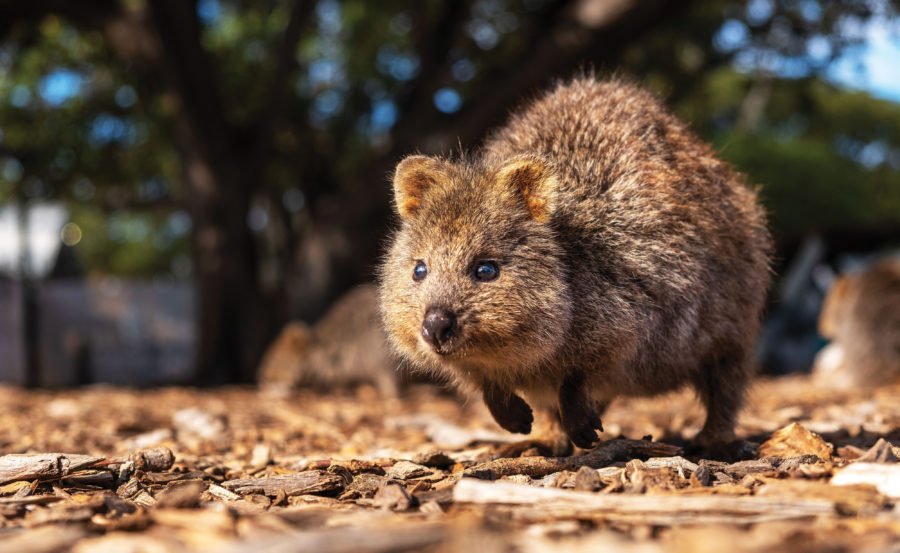
Climate
Social media made the quokka an internet sensation, but are things as happy as they should be for this much-loved little West Australian marsupial?

Fundraising
Help us purchase remote cameras that will enable the continuous 24/7 monitoring of large areas of the Rottnest Island.

Land
Quokkas may take more than a decade to recover from a 2015 bushfire in Western Australia, according to new research.
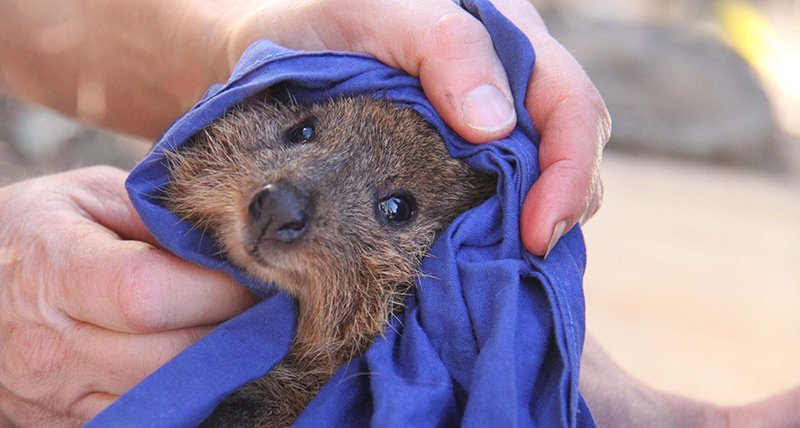
Land
IT’S 9.30AM AT TARONGA ZOO IN SYDNEY, and keepers Sam Elton and Simon Brown are trying to catch quokkas. Taronga is home to eight of these small macropods and it is health check time for the females, two of which are currently hopping about the large enclosure.
Sam moves quickly, scooping a quokka into a sack and handing it to Simon, who places it on the scales for a weigh-in. These health checks occur every three months and involve not only checking the animals’ weights, but also their mouths, eyes and paws.
Today, Sam will also check their pouches. “These quokkas are part of an insurance population and national breeding program for the species,” she says.
About the size of domestic cats, quokkas are herbivores and belong to a genus entirely of their own. In the wild, they are found only on Rottnest and Bald islands, Western Australia, as well as in a small pocket on the mainland in WA. Due to habitat destruction and also predation by wild dogs, quokka numbers have severely declined, with the species now considered Vulnerable by the IUCN.
On Rottnest, mating occurs in the middle of summer, so that when the joeys are born around 27 days later, it is cooler but there is still adequate food. On the mainland and in captivity, however, mating can occur all throughout the year.
Because of the threats to wild quokka populations, the keepers are hopeful that the inspection will reveal joeys. “Because of the insurance breeding program, we want to check to make sure they have offspring because we are relying on these guys,” Simon says.
With the quokka now cradled in his lap, Simon removes its lower body from the sack, but is careful to keep its eyes covered so the animal remains relaxed. “Even though they are tiny, they pack a strong kick,” says Sam.
“I’m also checking for cuts, cysts or tumours – anything that isn’t normal,” adds Sam, feeling inside the pouch. Unfortunately, the quokka isn’t pregnant, and so Sam continues with her other checks. “Her teeth are very clean,” she says, opening up the quokkas mouth and exposing a set of long, sharp teeth protruding from its lower jaw.
The check of the second female reveals another empty pouch, but Sam and Simon are pleased with the animals’ general health. “Maybe next time,” Simon says.
Text by Amy Russell
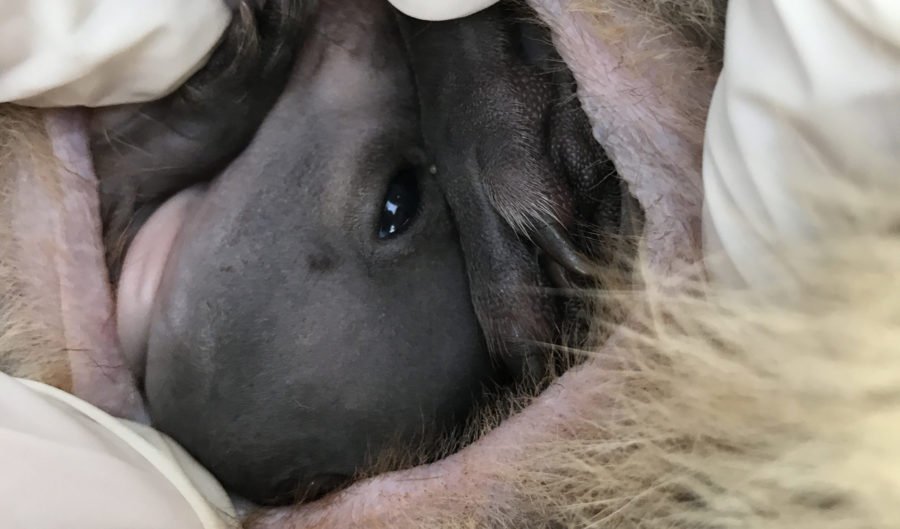
News
The female quokka joey has been officially named ‘Cinnamon’.
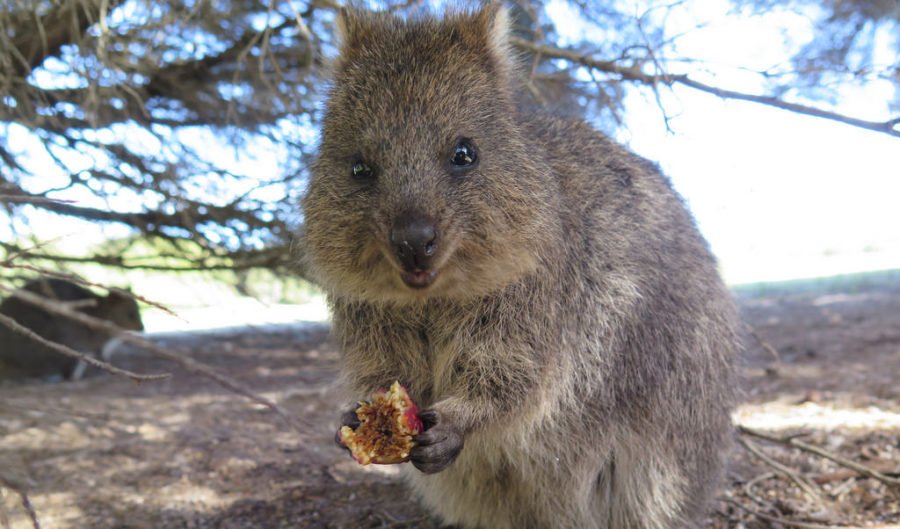
News
The quokka isn’t just a cute animal, now it’s also the name of a new Qantas Boeing 787-9 Dreamliner.
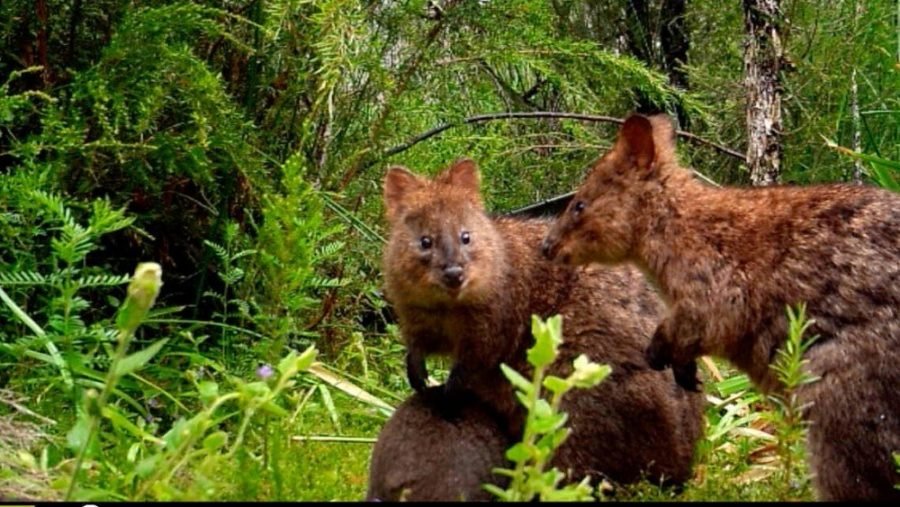
News
The new joey quokka is a happy sign after fires almost wiped out the local population in 2015.

News
The Australian Reptile Park in NSW has welcomed its first two smiling quokkas as part of a new breeding program.
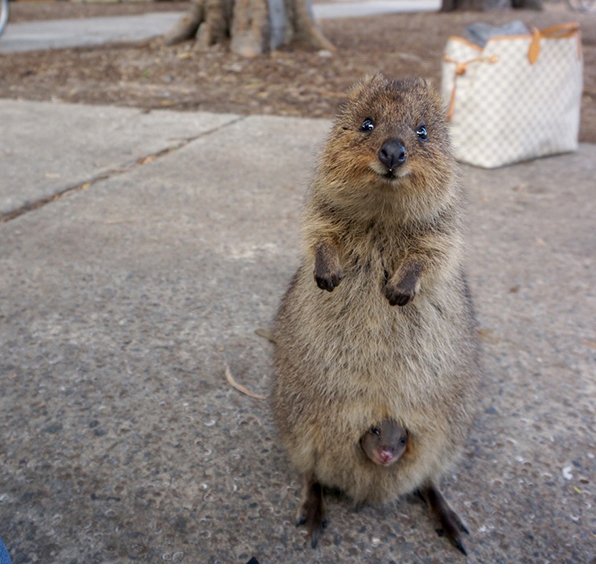
Reader Photos
A curious Quokka and her tiny joey check out photographer Jeanne’s camera gear on Rottnest Island, Western Australia








